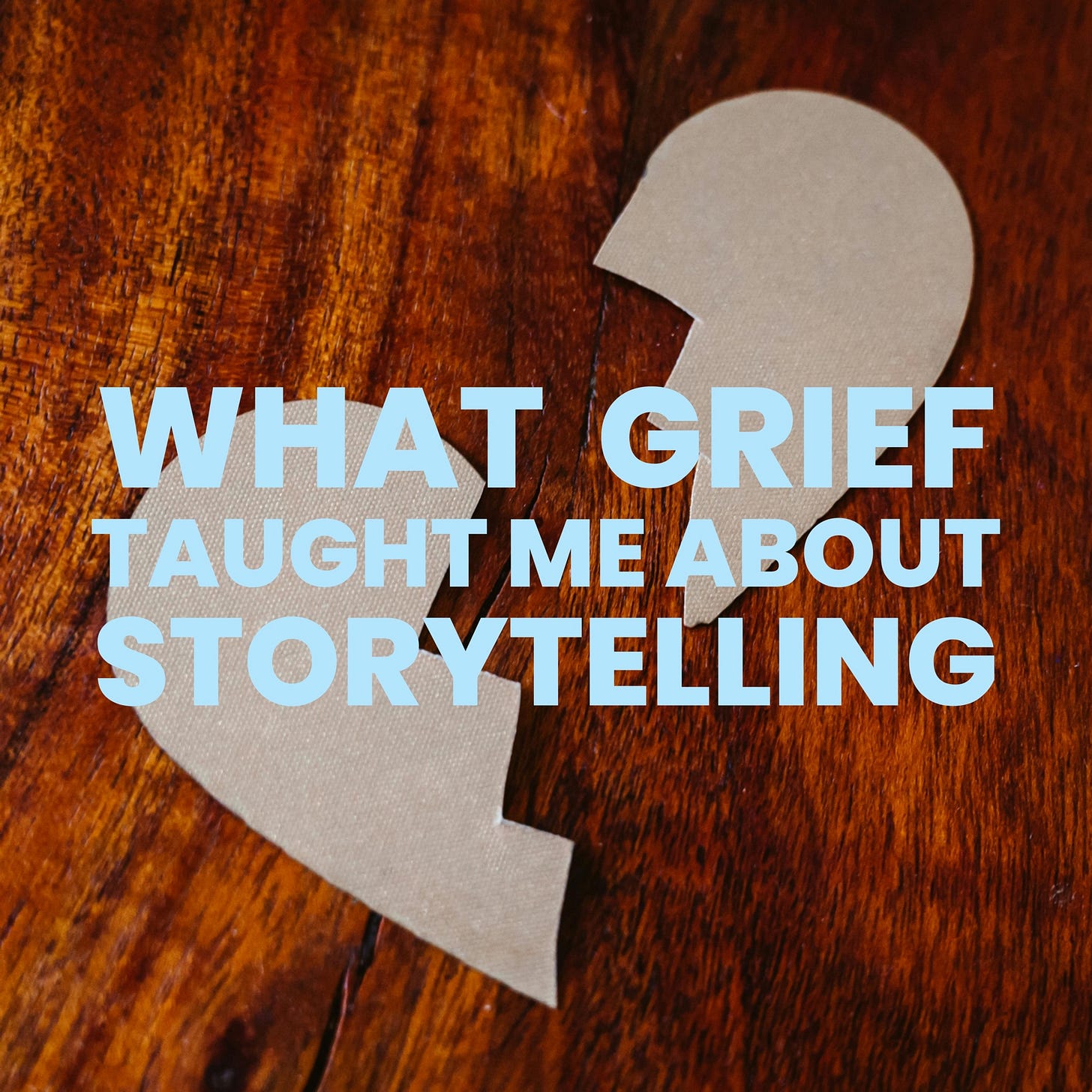What Grief Taught Me About Storytelling
There’s a strange thing that happens after you lose someone you love — the story you thought you were living ends mid-sentence. One minute, you’re a “we.” The next, you’re a plot twist you never saw coming.
In the early days after Ken died, I couldn’t make sense of anything. The timeline shattered. The main character disappeared. The supporting cast didn’t know their lines anymore. I felt like I was stuck between chapters — waiting for the next page that wouldn’t turn.
And for a long time, I didn’t write.
Looking back, it wasn’t that I didn’t have words — I had too many. They were loud and raw and made no sense together. Every time I tried to start, the story would dissolve into tears, or silence, or both. So I did what any good writer does when they’re completely lost: I stopped pretending I wasn’t.
Eventually, I learned something grief doesn’t tell you right away: every ending is also an edit. When the life you planned disappears, the story doesn’t actually stop. It just starts asking harder questions.
Who am I now? What do I do with all this love that has nowhere to go? How do I keep telling the story when one of my favorite characters is gone?
Grief stripped my storytelling down to its bones. It taught me that truth isn’t tidy. That sometimes, the most powerful stories aren’t the ones that resolve — they’re the ones that stay a little unfinished, like life itself.
Before, I used to write toward a point — a moral, a moment of clarity, a clean final paragraph that made it all mean something. After grief, I learned to write through the uncertainty instead. To let the story be messy, human, real.
And somewhere in that mess, meaning began to emerge — not because I forced it, but because I allowed it. Writing became my way of listening to the silence. Of giving shape to what hurt too much to say out loud. Of realizing that even when someone’s story ends, your connection to them doesn’t. It keeps evolving, like a subplot you never stop discovering.
Sometimes people tell me my essays about loss are “so brave.” But bravery feels too big a word. It’s not courage; it’s survival with punctuation. It’s sitting down to face the blank page and saying, Okay, let’s see what hurts today.
Grief taught me that storytelling isn’t about resolution — it’s about relationship. Between the writer and the wound. Between memory and meaning. Between who we were and who we’re still becoming.
It taught me that stories don’t save us from pain — they simply remind us we’re not alone in it.
And if that’s not the point of storytelling, I don’t know what is.
If this connected with you, come hang out in my newsletter, The Writing Life, Rewritten. It’s where I share more honest stories about the messy middle of being human.


